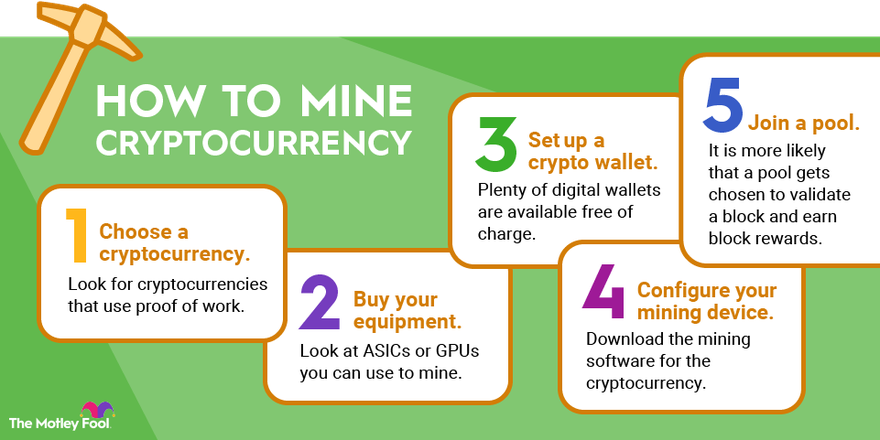Are you curious about investing in Bitcoin mining but not sure where to start? Don’t worry, I’ve got you covered! In this beginner’s guide, we will walk you through the ins and outs of investing in Bitcoin mining.
To begin with, it’s important to understand the basics of what Bitcoin mining actually is. Essentially, Bitcoin mining is the process by which new bitcoins are created and transactions are verified and added to the blockchain. Miners use powerful computers to solve complex mathematical equations, and in return, they are rewarded with freshly minted Bitcoins. So, if you’re thinking about investing in Bitcoin mining, you’re essentially investing in the hardware and the computational power needed to mine Bitcoins.
Now that we’ve laid the groundwork, let’s delve into the different ways you can invest in Bitcoin mining. One popular option is to purchase your own mining hardware and set it up at home. However, keep in mind that this can be a costly and time-consuming option, as you’ll need to invest in high-performance equipment and ensure proper cooling and electricity supply. Another alternative is to join a mining pool, where you contribute your computational power along with other miners to increase your chances of earning Bitcoins. Lastly, you can choose to invest in cloud mining services, which allow you to rent mining power from a remote data center.
Remember, investing in Bitcoin mining can be both exciting and risky, so it’s important to do your research and consider your financial goals before diving in. With the right knowledge and strategy, you can potentially reap the rewards of this rapidly evolving industry. So, are you ready to take the plunge and explore the world of Bitcoin mining investment? Happy mining!
A Beginner’s Guide to Investing in Bitcoin Mining

This image is property of Amazon.com.
Understanding Bitcoin Mining
Bitcoin mining is the process by which new bitcoins are created and transactions are verified and added to the blockchain. It is an integral part of the Bitcoin network and plays a crucial role in maintaining its decentralized nature. As a beginner, it is important to understand how mining works before diving into investing in this lucrative field.
Bitcoin mining involves using specialized computer hardware to solve complex mathematical algorithms. Miners compete to find the solution to these algorithms, and the first one to solve it successfully is rewarded with newly minted bitcoins. This process is known as proof-of-work and ensures the security and integrity of the Bitcoin network.
Benefits of Investing in Bitcoin Mining
Investing in Bitcoin mining can offer several advantages. For starters, it provides an opportunity to generate a passive income stream. As a miner, you can earn bitcoins as a reward for your mining efforts, which can then be held as an investment or exchanged for other cryptocurrencies.
Additionally, investing in Bitcoin mining allows you to become an active participant in the cryptocurrency ecosystem. By contributing to the mining process, you become an integral part of the network’s operations and further decentralize the system.
Moreover, with the increasing global adoption of cryptocurrencies, the demand for mining services is growing. This presents an opportunity for investors to capitalize on this growing market and potentially realize substantial returns on their investment.

This image is property of Amazon.com.
Factors to Consider Before Investing
Before diving into Bitcoin mining, it is essential to consider certain factors that can impact your investment. Firstly, you need to evaluate the cost of mining equipment, electricity, and other associated expenses. It is crucial to conduct a cost-benefit analysis to determine if the potential profits outweigh the costs.
Furthermore, understanding the regulatory environment and legal implications surrounding Bitcoin mining in your jurisdiction is necessary. Some regions may have specific regulations regarding cryptocurrency mining, which can affect the profitability and legality of your mining operation.
Additionally, the volatile nature of the cryptocurrency market should also be taken into account. Bitcoin prices can experience significant fluctuations, which can impact the profitability of your mining venture. It is crucial to have a long-term perspective and be prepared for market volatility.
Setting Up a Bitcoin Mining Operation
Setting up a Bitcoin mining operation requires careful planning and execution. One of the first steps is to determine the mining location. Factors to consider include access to cheap electricity, a stable internet connection, and a suitable cooling system to prevent mining equipment from overheating.
Once the location is secure, you will need to acquire the necessary mining hardware. This typically includes specialized mining rigs, known as ASICs (Application-Specific Integrated Circuits), which are designed specifically for mining Bitcoin. Proper research and evaluation should be conducted to choose reliable and efficient mining equipment.

This image is property of m.foolcdn.com.
Choosing the Right Mining Hardware
Selecting the right mining hardware is crucial to ensure optimal mining performance and profitability. When choosing mining rigs, factors like hash rate (computational power), energy efficiency, and cost play a significant role.
It is essential to consider the specific algorithms used by Bitcoin for mining and choose hardware that is compatible with these algorithms. Additionally, reading reviews and seeking recommendations from experienced miners can provide valuable insights into the performance and reliability of different mining hardware options.
Selecting a Mining Pool
Joining a mining pool can be beneficial, especially for beginners. Mining pools consist of groups of miners who pool their computing power to increase the chances of solving algorithms and earning rewards. By joining a mining pool, you can have a more consistent income stream, as the rewards are distributed among the pool’s participants based on their contributions.
When selecting a mining pool, factors such as pool fees, payout frequency, reputation, and reliability should be taken into account. It is advisable to join a well-established mining pool with a good track record to minimize potential risks.

This image is property of Amazon.com.
Calculating Potential Profits
Estimating potential profits is an essential aspect of investing in Bitcoin mining. Various online calculators are available that can help you determine the potential profitability of your mining operation. These calculators take into account factors such as mining difficulty, electricity costs, hardware efficiency, and the current price of Bitcoin.
It is important to note that mining profitability can fluctuate over time due to changes in network difficulty, block rewards, and Bitcoin’s price. Regularly monitoring and adjusting your mining operation to adapt to market conditions is crucial for maximizing potential profits.
Managing Electricity Costs
Electricity costs are a significant consideration for Bitcoin miners, as mining operations require substantial amounts of electricity to power the mining hardware. Researching and selecting locations with low electricity rates can significantly impact the profitability of your mining investments.
Additionally, implementing energy-efficient mining hardware and optimizing mining settings can help reduce electricity consumption. Regularly monitoring electricity usage and finding innovative ways to minimize costs can contribute to higher profit margins.

This image is property of cdn.kobo.com.
Ensuring Security and Safety
Security is paramount when investing in Bitcoin mining. It is important to ensure the safety of your mining equipment, as well as the security of your mined bitcoins. Implementing robust security measures, such as encryption, firewall protection, and regular software updates, can help safeguard your mining operation from potential threats.
Moreover, storing your mined bitcoins in secure wallets is essential. Hardware wallets or offline wallets provide an added layer of security by keeping your bitcoins offline and out of reach from potential hackers.
Monitoring and Optimizing Your Mining Operation
Continuous monitoring and optimization are key to a successful mining operation. Monitoring the performance of your mining hardware, network conditions, and market trends can help identify areas for improvement and maximize your mining efficiency.
Regularly updating your mining software and firmware ensures you are utilizing the latest advancements and improvements in the mining industry. Additionally, staying informed about technological advancements and industry best practices can help you stay ahead of the competition and maintain a profitable mining operation.
In conclusion, investing in Bitcoin mining can be a rewarding venture for beginners if approached with careful planning and consideration. By understanding the fundamentals of mining, evaluating crucial factors, and implementing the necessary steps to set up and optimize a mining operation, you can embark on a profitable journey in the world of Bitcoin mining. Remember to stay updated, adapt to changing market conditions, and prioritize security to maximize your chances of success. Happy mining!











